You must have a long-term horizon and enjoy the wine more than money. The two types of wine investors are those that invest in the liquid asset itself for the capital gains or those that simply drink it for the love of it. If you are like the bulk of us, you would like to enjoy drinking the best wines in the world guilt free.
First step is to choose and purchase an investment-grade wine from the greatest producers and vintages in the wine world. An investment wine needs to have certain attributes to make sure it is in high demand when the time comes to sell. In the wine you choose it is essential to have these qualities….
Reputation- Wine producers with only the best reputations make the highest quality investment grade wines that have the ability to fetch the highest sale price after aging. Most investors feel comfortable with a producer who has a proven track record quality. Historically the most sought-after investment wines come from Bordeaux and Burgundy in France. Other regions in Italy, Spain and America are also steadily ascending the hierarchy of fine wines.
Age Worthiness – Because not all wines get better with age. An investment wine should show the traits of ageability. Wines designated as investment-grade tend to reach maturity many years after bottling and can also age for upwards of 100 years.
Rarity- Vintages are never the same and come with unique properties that are nearly impossible to duplicate. Every year a wine producer only makes a certain number of bottles for that vintage. Therefore, every year there are fewer and fewer of that bottle due to consumption or other various factors which in turn, drive up the bottle prices for that vintage. The less there is of something the more value it holds.
Critic Ratings- Wines that are highly rated by critics also play a crucial role in the wine you choose to invest in. Highly Rated wines by critics such as Robert Parker, Wine Spectator Magazine, and The Wine Advocate all use a 100-point wine scoring system. Most the investment wines will always score 95pts or above with the ability to be re-tasted in the future after aging.
Where to buy your investment wine? Finding the right retailer who can help guid you through the process is paramount. The wine retailer must understand your goals and aspirations, after all this is a relationship business. Some boutique wine stores have the ability to buy many of these investment grade wines. Some offer futures, which is great for dollar cost averaging into purchases, storage, and provide guidance on when and how much to sell your wine for. Many people that invest in wine will never even see their bottle. All of it can be handled through the brokers and merchants that can set everything up from the purchase, storage, and sale of your investment. Creating a paper trail is one of the most important matters in wine investing. Like the Fine Art market, the Fine Wine Market also has its fair share of counterfeits, so it is of upmost importance to track the provenance of your bottles.
Second step is the real hard and tantalizing part, the waiting. This part of the process is possibly the most important of all for your wine investment. It is paramount that your investment is stored in the best environment for your wine to evolve in the bottle in order to yield the highest auction prices. Professional Wine Storage Facilities like Carl’s Wine Vault control the Temperature, Humidity, Security, and other crucial services needed in this instrumental process. Sotheby’s Wine Index has consistently outperformed the S&P 500 since 2005. The more the wine ages the more it appreciates in value. Like Real Estate and Fine Art they are typically medium to long term investments with an expected sale time but the markets always change and can be sold before or after your estimated sale range. Establishments such as Carl’s Wine Vault are in constant communication with their partners and suppliers that are constantly watching the market and are “in the know” of the most sought-after market conditions for your investment. As I mentioned before having provenance or having a paper trail of your wine is of upmost importance. You can have a private cellar to store your investment wine in but when it goes to auction it won’t fetch the highest price because it would be difficult to track the storage conditions for that many years. Most investors opt to store the wine in specialized storage facilities like Carls wine Vault until their win reaches maturity. Carl’s will not only pickup, deliver, and store your wine they will document everything and prove that the wine has been handled professionally and stored in conditions that exceed the normal expectations. Surpassing the top wine storage facilties in the UK, New York, and California. That, my friends, will guarantee you will get the highest auction or sale price for the bottle and is a fraction of the cost of building and maintaining a private wine cellar.
Third step is to sell and reap the financial rewards or to drink half and enjoy with Family and Friends! We have always been told great things come to those who wait but they were wrong… it tastes even better. For over 100 years Wine returns have outpaced bonds, art, and other alternative investments. Therefore, offering consistent returns that don’t really correspond with the traditional market. According to Liv-ex, in the last 15years this liquid asset had delivered 10.6% in annualized returns. The Liv-ex 100 Fine Wine 100 has risen 270.7% from July 2001 to July 2021 which outperforms the S&P 500 by 8% over the same period. I also forgot to mention that you don’t have to pay capital gains on your profit! Investing in fine wine has recession resistance, inflation resistance, low volatility, and you have the ability to choose to have physical custody of the asset or have it professionally managed. Whichever route you take we hope you enjoy your adventure into the wine world. Cheers!

